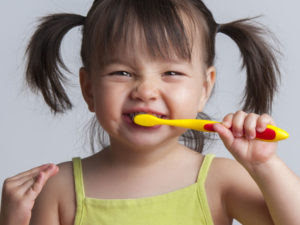Preparing Your Child for Their First Dental Visit: Tips and Strategies
The first dental visit can be an intimidating experience for both children and parents alike. However, setting the right tone and preparing your child adequately can turn it into a positive and even enjoyable experience. In this guide, we’ll explore various tips and strategies to help parents prepare their child for their inaugural trip to the dentist, ensuring it lays the foundation for a lifetime of good oral health habits.
Understanding the Importance of Early Dental Visits:
Many parents wonder when the ideal time is for their child’s first dental visit. The American Academy of Pediatric Dentistry recommends scheduling a child’s first dental appointment around their first birthday or within six months after their first tooth erupts. Early dental visits serve multiple purposes: they allow the dentist to monitor oral development, provide guidance on proper oral care techniques, and establish a positive relationship between the child and the dental team.
Start Early with Positive Reinforcement:
Long before the first dental visit, parents can begin preparing their child by instilling positive attitudes towards dental care. This can involve reading books about visiting the dentist, watching child-friendly videos, and role-playing dental visits at home. By normalizing the experience and presenting it as something routine and non-threatening, parents can help alleviate their child’s anxieties.
Choose a Pediatric Dentist:
Opting for a pediatric dentist who specializes in treating children can make a significant difference in your child’s first dental experience. Pediatric dentists undergo additional training beyond dental school, focusing on child psychology, behavior management, and techniques tailored to young patients. Their offices are often designed with children in mind, featuring colorful decor, toys, and entertainment options that help create a welcoming environment.
Schedule a “Meet and Greet” Appointment:
Before the actual dental visit, consider scheduling a brief “meet and greet” appointment with the dentist. This introductory session allows the child to become familiar with the dental office, meet the dentist and staff, and ask any questions they may have. It’s an opportunity for the child to feel more comfortable and confident about their upcoming visit.
Communicate Positively:
When discussing the dental visit with your child, use positive language and avoid mentioning any negative experiences you may have had at the dentist. Emphasize the importance of taking care of their teeth and reassure them that the dentist is there to help keep their smile healthy and beautiful. Encourage questions and address any concerns they may have with honesty and empathy.
Role-Play the Dental Visit:
Role-playing can be an effective way to demystify the dental visit experience for children. Set up a pretend dental office at home using chairs, toothbrushes, and mirrors, and take turns playing the roles of the dentist, dental assistant, and patient. Allow your child to familiarize themselves with the dental instruments and procedures in a safe and playful environment.
Practice Good Oral Hygiene Together:
Leading up to the dental visit, make oral hygiene a fun and interactive part of your daily routine. Brush and floss your teeth together as a family, using age-appropriate toothbrushes and toothpaste for your child. Use this time to reinforce the importance of brushing twice a day, flossing daily, and eating tooth-friendly foods.
Address Specific Concerns:
If your child has specific fears or anxieties about visiting the dentist, take the time to address them individually. Whether it’s fear of the unknown, fear of pain, or fear of separation from parents, acknowledging their feelings and providing reassurance can help ease their apprehensions. Discussing coping strategies such as deep breathing exercises, counting, or bringing a comfort item to the appointment can empower your child to manage their emotions effectively.
Manage Expectations:
It’s essential to manage both your child’s and your own expectations about the dental visit. Understand that some level of apprehension is normal, especially for young children encountering new experiences. While the goal is to make the visit as pleasant as possible, it’s okay if your child feels nervous or apprehensive. Focus on praising their bravery and reinforcing positive behaviors during and after the visit.
Conclusion:
Preparing your child for their first dental visit involves a combination of education, positive reinforcement, and open communication. By taking proactive steps to familiarize your child with the dental experience and address their concerns, you can help ensure that their first visit is a positive and empowering one. Remember that building a foundation of trust and confidence with the dentist in the colony early on sets the stage for a lifetime of good oral health habits.

.jpg)
.jpg)

Comments
Post a Comment